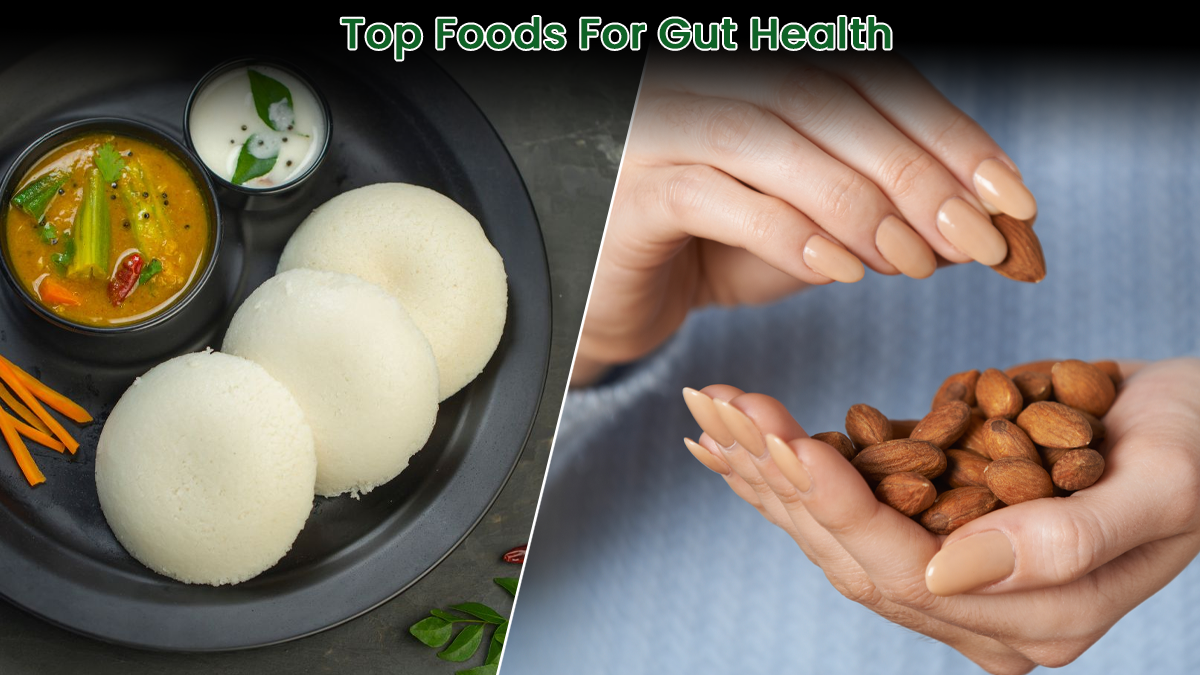World Digestive Health Day 2025 Emphasizes Natural Gut Health Strategies

Gut health is widely recognized as the foundation of our overall well-being, profoundly impacting our mood, energy levels, and even the strength of our immune system. Despite its importance, many individuals may not fully consider how their dietary choices affect their digestion. World Digestive Health Day, observed annually on May 29th to mark the anniversary of the World Gastroenterology Organisation, serves as a crucial reminder to focus on our digestive wellness. The theme for World Digestive Health Day 2025, "Your Digestive Health: Nourish to Flourish," encourages everyone to pay greater attention to their digestive health as an integral part of a healthy lifestyle. Digestion itself is the body's complex process of breaking down ingested food into nutrient components, which provide energy and are used for the growth and repair of cells. Once food molecules are broken down, these nutrients pass through the bloodstream and are transported to every cell in the body for various functional purposes.
The gut is home to trillions of bacteria, both beneficial and potentially harmful. When the good bacteria flourish, they aid in digesting food, absorbing essential nutrients, and protecting the body from illness. However, an imbalance in this delicate ecosystem can lead to discomforts such as bloating, persistent fatigue, or an increased susceptibility to sickness. Fortunately, as Dr Anju Ghei, Head – Preventive Health, VLCC, New Delhi, states, “Most non-genetic factors affecting our gut health are entirely in our control, starting with the simplest: watch what you eat!”
Nurturing your gut involves making mindful dietary choices. Below are several food types and practices recommended by experts to support digestive health:
1. Fibre-Rich Foods: Fibre is paramount for a healthy gut microbiome. Dr Ghei explains, “Fibre is the staple food of all good bacteria in our gut. Prebiotics like whole grains, beans, legumes, fruits, and vegetables provide essential fibre for the microbiome to grow and survive.” Incorporating foods like oats, brown rice, lentils, apples, and carrots into your meals can be beneficial. During summer, fruits and vegetables such as cucumber, watermelon, papaya, spinach, and bottle gourd are particularly valuable as they also provide water, vitamins, and antioxidants, aiding hydration and detoxification. Consuming these as raw salads, smoothies, or lightly cooked vegetables can enhance digestion.
2. Nuts and Seeds: Nuts like almonds, walnuts, and pistachios are more than just convenient snacks. According to Dr Ghei, “Almonds, walnuts, pistachios, rich in polyphenols and antioxidants, help gut bacteria to multiply.” A small handful daily can contribute to a thriving gut environment and smoother digestion.
3. Prebiotic Foods: Prebiotics are specialized plant fibres that act as nourishment for beneficial gut bacteria. Dr. Ghei highlights, “Prebiotics like banana, rye, oats, wheat bran, onion, garlic contain fructans that feed good bacteria.” Adding these ingredients to your diet, such as a banana for breakfast or garlic in your cooking, offers a gut-friendly boost.
4. Probiotic Foods: Probiotics are foods containing live, healthy bacteria that help maintain a balanced gut. Dr. Ghei recommends, “Probiotics rich in live healthy bacteria like yoghurt, pickle, kefir, kombucha, kimchi, sourdough bread, dhokla, kanji, idlis, and dosa help in seeding the biome.” Summer is an excellent time to incorporate natural, cooling probiotics. Consider eating a bowl of curd or yogurt daily, drinking a glass of buttermilk (chaas) or fermented rice water, and including fermented foods like pickles or kimchi in moderation.
5. Hydration, Detox Waters, and Teas: Staying adequately hydrated is crucial for good digestion. Water helps keep the gut lining healthy, aids in breaking down food, facilitates nutrient absorption, and ensures waste moves smoothly through the intestines. Aim for 8-10 glasses of water a day, especially during summer when fluid loss through sweat can lead to dehydration and constipation. You can enhance your water with lemon, mint, or cucumber. Dr. Ghei also suggests, “Detox waters infused with fruits and vegetables or with turmeric, pepper, lemon or ginger are great for your gut. Black tea, green tea, rich in catechins and black coffee, rich in chlorogenic acid, are powerful antioxidants.”
Beyond diet, certain lifestyle habits are instrumental in maintaining gut health, particularly during warmer months:
1. Stay Physically Active: Regular exercise improves blood flow to digestive organs, helps move food through the gut, and stimulates a diverse microbiome. It is also beneficial for managing stress, which can negatively impact digestion. Aim for about 30 minutes of exercise daily. During summer, light activities like walking, swimming, yoga, and stretching are recommended, while heavy exercise during potential heat exhaustion should be avoided.
2. Manage Stress Effectively: The brain and gut are directly linked via the gut-brain axis. High levels of stress or anxiety can contribute to digestive issues like an upset stomach, bloating, dyspepsia, or even Irritable Bowel Syndrome (IBS). To promote gut health, practice stress-reduction techniques such as meditation, deep breathing, or mindfulness for 10-15 minutes daily. Establishing a healthy routine that includes adequate rest, quality sleep, and breaks from screens, as well as engaging in hobbies or spending time in nature, can alleviate mental fatigue and support digestive wellness.
It's also important to be aware of what can harm your gut. Dr Ghei warns, “Use of antibiotics should be restricted, limited to when and as long as necessary, as it destroys bacteria, which takes months to recover.” She also cautions against artificial sweeteners: “Though touted for their zero calorie, no sugar, artificial sweeteners can play havoc in the gut, destroying the biome.” Additionally, it's advisable to avoid overeating spicy or fried foods, which can irritate the gut, especially during summer.
In conclusion, taking care of your gut health does not need to be a complicated endeavor. Simple dietary adjustments, such as incorporating foods like almonds, yoghurt, and idlis, along with adopting healthy lifestyle practices, can make a significant difference. These small, mindful changes can lead to improved digestion, increased energy, and a healthier life overall. World Digestive Health Day serves as a timely reminder that by nourishing our gut, we empower ourselves to flourish.
Recommended Articles
Comprehensive Insights into Gut Health and Microbiome

Discover how your gut microbiome acts as your body's command center, influencing everything from immunity to hormones an...
US Doctor's Daily Brain Health Routine

Dr. Saurabh Sethi shares five daily habits for enhancing brain health and memory, emphasizing the importance of caring f...
Link Between Poor Oral Health, Migraines, and Body Pain in Women

A new study reveals a strong link between poor oral health and chronic pain conditions like migraines and fibromyalgia i...
Kombucha and Gut Health Benefits

Kombucha, a fermented tea, is touted for its potential gut health benefits due to its probiotic content and natural ferm...
Inspiring Weight Loss Journeys

This article synthesizes the weight loss journeys of Simran Poonia and Jyotika, emphasizing holistic approaches to healt...
You may also like...
Diddy's Legal Troubles & Racketeering Trial

Music mogul Sean 'Diddy' Combs was acquitted of sex trafficking and racketeering charges but convicted on transportation...
Thomas Partey Faces Rape & Sexual Assault Charges

Former Arsenal midfielder Thomas Partey has been formally charged with multiple counts of rape and sexual assault by UK ...
Nigeria Universities Changes Admission Policies

JAMB has clarified its admission policies, rectifying a student's status, reiterating the necessity of its Central Admis...
Ghana's Economic Reforms & Gold Sector Initiatives

Ghana is undertaking a comprehensive economic overhaul with President John Dramani Mahama's 24-Hour Economy and Accelera...
WAFCON 2024 African Women's Football Tournament

The 2024 Women's Africa Cup of Nations opened with thrilling matches, seeing Nigeria's Super Falcons secure a dominant 3...
Emergence & Dynamics of Nigeria's ADC Coalition

A new opposition coalition, led by the African Democratic Congress (ADC), is emerging to challenge President Bola Ahmed ...
Demise of Olubadan of Ibadanland
Oba Owolabi Olakulehin, the 43rd Olubadan of Ibadanland, has died at 90, concluding a life of distinguished service in t...
Death of Nigerian Goalkeeping Legend Peter Rufai

Nigerian football mourns the death of legendary Super Eagles goalkeeper Peter Rufai, who passed away at 61. Known as 'Do...